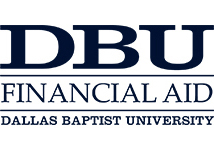Financial Aid Lingo
529 Savings/College or Educational Plans
529’s are state-sponsored investment plans, officially called Qualified Tuition Programs (QTP), which help families save money for college. These plans may have tax benefits so your savings can grow faster. All programs provide funds that can be used for educational expenses. These plans are not added to an award letter. Speak to our cashier office about how to set up billing for these programs.
Cost of Attendance
Cost of Attendance (COA) includes money spent on tuition/fees, room and board, books/supplies, and reflects a number of direct college expenses before any financial aid is applied. This is a budget number the Department of Education requires schools to put together that reflects a total amount of college expenses, including living expenses, and possible transportation expenses.
What is Cost of Attendance? >> | Net Price Calculator >>
Demonstrated Need
Also referred to as "need;" the difference between your Student Aid Index (SAI) and the total Cost of Attendance (COA). The Student Aid Index (SAI) is a number that colleges use to determine how much federal student aid a student is eligible to receive and establish need. The SAI is based on information from the Free Application for Federal Student Aid (FAFSA).
How are financial aid amounts determined?>>
Enrollment Status
A classification based on the number of credit hours taken (i.e., your enrollment status may be full-time or half-time). Some aid may be limited or unavailable to students with a certain enrollment status, usually half-time or less.
Student Aid Index (SAI)
Your Student Aid Index (SAI) is a federal government formula-based index number ranging from a negative–1500 to 999999. Where your SAI falls within the SAI range helps DBU determine how much financial support you may need.
A negative SAI indicates you have a higher financial need.
How are financial aid amounts determined?>>
Financial Aid
Financial Aid is any grant or scholarship, loan, or paid employment offered to help a student meet his/her college/university expenses. Such aid is usually provided by various sources such as federal and state agencies, colleges/universities, high schools, foundations, and corporations. Some financial aid, such as loans, are subject to repayment. For a more complete explanation, visit our Types of Aid webpage.
Financial Aid Award Letter
The letter DBU sends out from the Office of Financial aid which will help explain the types, terms, and amounts of financial aid offered at the time a student was reviewed and awarded aid. The letter may also include instructions on securing aid and any additional cost information needed. It may or may not include ALL that will be available to students. It is always wise to contact the Office of Financial Aid for a full explanation.
Free Application for Federal Student Aid (FAFSA)
Submitted to the Department of Education to determine eligibility for various types of federal financial aid programs. It is required for all students seeking federal student grants, work-study programs, and loans. It is not itself an aid program, but it is part of the two-step application to be reviewed for and receive aid at DBU.
FAFSA >> | First-time FAFSA Filers >>
Grant
"Gift aid" that doesn't have to be paid back. Federal, state, institutions, groups, and individuals provide these if a student qualifies. Grants may or may not be awarded based on need.
Loan
Money borrowed from the federal or state government, another lending institution, or foundation. Loans need to be paid back. They can vary widely with regard to interest rates, origination fees, and payback options. Most loan payments do not begin until a student has been out of school at least six months. Learn about the various kinds of educational loans that may be available to students as an aid in paying for a degree.
Merit-Based Aid
Financial aid is given to students based on their personal achievements. Many, if not most, scholarships are considered merit aid as they are generally awarded for success in school, the arts, athletics, community involvement, or other areas.
Need-Based Financial Aid
Grants, scholarships, loans, and work-study opportunities provided to students based on their needs and ability (per the federal formula) to pay the cost of attending any given institution.
Net Price/Net Price Calculator
The institution’s published price for attendance at any institution (including tuition, fees, room and board, books, and supplies, travel and personal expenses) minus any/all awarded financial aid. ‘Net price’ may be considered a very close estimate of the true and direct costs a student will pay for a college. Our Net Price Calculator is an online tool that provides a student with a personalized estimate of what it will cost to attend DBU.
Outside Scholarship
Sometimes referred to as "private" scholarships. These scholarships are provided through various groups, corporations, nonprofits, civic organizations, or individuals. Eligibility requirements can vary from entity to entity. These are not part of what is normally offered through the government or DBU (institutional) aid.
Priority Date
The date by which an application for admission, student housing, or financial aid must be received to be given the highest priority. Since some aid programs are limited in funds, meeting the priority date is important to be eligible to receive funds.
Scholarship
Financial aid that doesn't have to be paid back. These may have eligibility requirements to both receive and retain over the course of a student's educational pursuits. Scholarships may be provided as a one-time gift, over a limited time, or have defined maintenance qualifications. While many may be, not all scholarships are awarded solely on merit.
FAFSA Submission Summary (FSS)
After your Free Application for Federal Student Aid (FAFSA) form is submitted and processed, you can access your FAFSA Submission Summary. This can be an electronic or paper document that summarizes the information you reported on your FAFSA form. It includes your estimated eligibility for a Federal Pell Grant and federal student loans, your Student Aid Index (SAI), and whether you’ve been selected for verification.
Verification
A student may receive notification from our office regarding documentation required to complete a verification request from the Department of Education. DBU will follow through to compare or verify, certain demographic and financial information reported on the FAFSA with other supporting documentation. DBU may request additional forms and paperwork if a student is selected. It is not advised to submit any documents unless specifically directed to do so.
Work-Study
A program that allows students to take a part-time campus job as part of their financial aid package. To qualify for the Federal Work-Study Program, which is funded by the government, you must complete the Free Application for Federal Student Aid (FAFSA). Once a student has secured a position on-campus, paperwork must be submitted by the student's supervisor to the Office of Financial Aid to complete the process.

